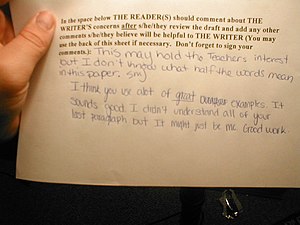Imagine this: You’re hard at work on your story when a new
idea jumps into your head, an idea which takes your new project in a whole new
direction. Or an idea for a new project altogether.
You can’t wait to see where this exciting new idea takes
you. It may even be The One which makes
all your dreams come true.
So you stop what you’re working on and dive right in—only to
find your new idea's tank has no water. Or, worse,
yet another new idea comes along and steals you away—again.
Ideas are wonderful, but writers who chase ideas risk
derailing their projects or never finishing them.
That’s why writers need the dirty D-word—discipline.
If you’re like me, the word discipline conjures negative images of teachers standing over you
with rulers, refusing to let you go to recess until you’ve learned your ABC’s.
And that’s unfortunate. Discipline is an indispensable tool
for writers.
Discipline means
-
you
stay focused
- you
finish the project at hand
- you
refuse to get sidelined by other projects or concerns
- you
believe in yourself and your work.
And that’s it. That’s
really all discipline entails.
Sure, discipline may
include setting a particular time and place to write or observing other
rituals. But rituals vary from writer to writer and don’t have to be boring. (My blogging ritual, for example,
involves walking to a certain restaurant and writing while eating a good
breakfast. But I’m flexible—I do this on either Friday or Saturday.)
Discipline means you
say no to your inner child (or inner dreamer or inner critic or whatever metaphor works for
you). It’s okay. Your inner child can take it. She may scream and holler and
pitch a fit, but she’ll get over it. And she’ll be better equipped to come up
with ideas you can use once she realizes you’re serious.
Discipline means you
trust the good ideas—the really good ones—won’t get away. Ideas are like falling in love. The really good ones stick in the back of your mind after the initial excitement wears off.
Discipline means you
do the hard work. Let’s face it: Writing is hard. I know, I know . .
.writing is supposed to be fun. It’s supposed to be the thing we do so we don’t
have to go out and get real jobs.
But if you hold fast to that attitude, you’ll never do any
hard work—at least not without a fast food manager looking over your shoulder.
In writing, discipline means you get to be both manager and
employee—but you have to be tough in each role.
Discipline means you
finish what you started. Your project doesn’t seem feasible now? It entails
tasks you never thought of (such as research, marketing, cover design)? You’ve
got so many things going on—children to feed, bills to pay, laundry?
So what? So does every writer who’s ever “made it”. (Read
Stephen King’s
On Writing or Rick
Bragg’s
All Over but the Shoutin’ for
first-hand accounts of their struggles to write for a living.)
And your struggle to finish what you started can be a good thing. Overcoming distractions and meeting challenges which lead to growth are what most stories are about. Your personal struggles give
you something to write about or add authenticity to what you’ve already
written.
Discipline, in other words, helps you do two things: 1) know
when an idea is worth pursuing, and 2) realize it.
So, go ahead. Use the
dirty D-word. Pass it on.
How do you discipline yourself as a writer?







